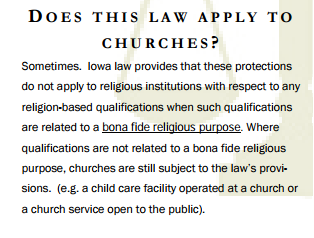It appears all but certain that Hillary Clinton will not face federal charges over her “extremely careless” handling of emails. FBI Director Comey gave her a stern public reprimand but that came with no recommendations for other consequences. Comey also asserted that no prosecutor would take up her case with the set of facts as the FBI had uncovered them. He may be right. However, others have done very similar things and been prosecuted. One such case is Bryan Nishimura.
Nishimura, a Navy Reserve Commander, violated 18 U.S.C. § 1924 pertaining to the “unauthorized removal and retention of classified documents and materials.” According to court documents, beginning in 2007 while in Afghanistan, Nishimura downloaded classified documents on to his personal devices. He then brought that information back to the United States when he service in Afghanistan ended. The FBI found the classified documents on an unclassified server in his home. As with Clinton, the FBI found no evidence that Nishimura intended to distribute the classified information. He had work related classified information stored on unauthorized servers without intent to distribute. He was extremely careless.
He also faced consequences. Nishimura was fined $7500, placed on probation, forced to give up his security clearance and barred from applying for security clearance in the future.
The relevant statute reads:
§ 1924. Unauthorized removal and retention of classified documents or material (a) Whoever, being an officer, employee, contractor, or consultant of the United States, and, by virtue of his office, employment, position, or contract, becomes possessed of documents or materials containing classified information of the United States, knowingly removes such documents or materials without authority and with the intent to retain such documents or materials at an unauthorized location shall be fined under this title or imprisoned for not more than one year, or both.
The federal complaint against Nishimura reads:
The United States Attorney charges:
THAT BRYAN H. NISHIMURA, defendant herein, from on or about January 2007 through April 2012, while deployed outside of the United States on active military duty with the United States Navy Reserve in Afghanistan and thereafter at his residence located in the County of Sacramento, State and Eastern District of California, being an officer and employee of the United States, specifically: a United States Navy Reserve Commander, and, by virtue of his office and employment as such, becoming possessed of documents and materials containing classified information of the United States, specifically: CLASSIFIED United States Army records, did knowingly remove such documents and materials without authority and with the intent to retain such documents and materials at his residence in the County of Sacramento, an unauthorized 2 location, in violation of Title 18, United States Code, Section 1924(a), a Class A misdemeanor.
Could we not substitute Hillary Clinton’s name in this paragraph?
According to FBI Director Comey, Clinton sent emails which were classified at the time she sent them.
From the group of 30,000 e-mails returned to the State Department, 110 e-mails in 52 e-mail chains have been determined by the owning agency to contain classified information at the time they were sent or received. Eight of those chains contained information that was Top Secret at the time they were sent; 36 chains contained Secret information at the time; and eight contained Confidential information, which is the lowest level of classification.
Clinton told the public she did not send classified emails. These emails were stored on vulnerable servers. Comey added:
Although we did not find clear evidence that Secretary Clinton or her colleagues intended to violate laws governing the handling of classified information, there is evidence that they were extremely careless in their handling of very sensitive, highly classified information.
For example, seven e-mail chains concern matters that were classified at the Top Secret/Special Access Program level when they were sent and received. These chains involved Secretary Clinton both sending e-mails about those matters and receiving e-mails from others about the same matters. There is evidence to support a conclusion that any reasonable person in Secretary Clinton’s position, or in the position of those government employees with whom she was corresponding about these matters, should have known that an unclassified system was no place for that conversation. In addition to this highly sensitive information, we also found information that was properly classified as Secret by the U.S. Intelligence Community at the time it was discussed on e-mail (that is, excluding the later “up-classified” e-mails).
None of these e-mails should have been on any kind of unclassified system, but their presence is especially concerning because all of these e-mails were housed on unclassified personal servers not even supported by full-time security staff, like those found at Departments and Agencies of the U.S. Government—or even with a commercial service like Gmail.
Like Nishimura, Clinton housed documents (emails) on unclassified personal servers and she should have known better.
Is the difference in outcome because Nishimura downloaded classified digital records and briefings to a device and stored them at his home and Clinton’s documents were classified documents of the email variety? Or is the difference because Clinton is a Democrat running for president and Nishimura was a Navy Reservist?
In Nishimura’s case, he admitted his deeds. Mrs. Clinton told the public she didn’t send classified information. The FBI says she did. The Associated Press has a take down of those claims. Seems like she needs to address her statements which conflict with the FBI’s investigation.
If her defense is that she didn’t know she was breaking the law, it doesn’t help to inspire confidence in her competence.
I am not an attorney but as a layman reviewing Nishimura’s case and the FBI statement about Clinton, I think Nishimura should consider asking for a pardon. Or alternatively, the American people should consider assigning Nishimura’s punishment to Mrs. Clinton: no additional security clearance or access to even more classified information.
